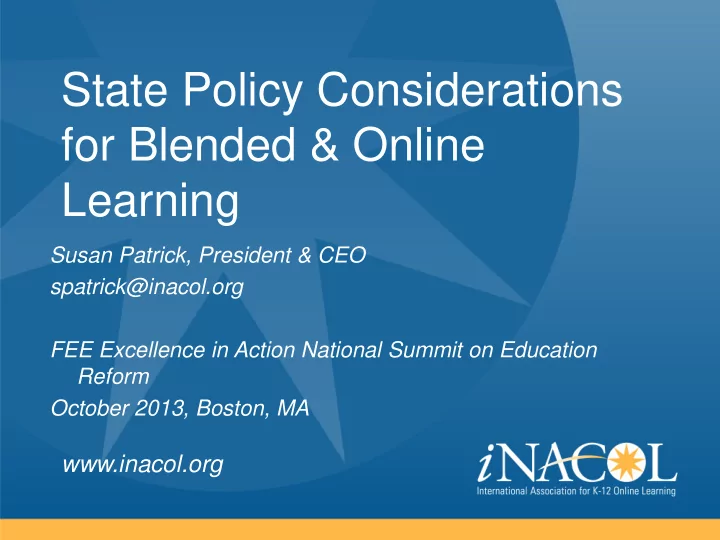

State Policy Considerations for Blended & Online Learning Susan Patrick, President & CEO spatrick@inacol.org FEE Excellence in Action National Summit on Education Reform October 2013, Boston, MA www.inacol.org
www.inacol.org
From Inputs… iNACOL National Quality Standards Online Courses Online Teaching Online Programs www.inacol.org
… to outcomes Quality assurance for online schools www.inacol.org
Quality Assurance for Full Time Online Schools • Proficiency • Individual student growth along a trajectory • Graduation rates • College and career readiness • Closing the achievement gap • Fidelity to a student’s academic goals
Quality Assurance for Supplemental Programs • Performance measures: – Proficiency – Individual student growth along a trajectory • Common assessments across course subjects • End of course exams
Performance-Based Funding Model • Must start with equitable funding base. • Full-time base cost: 93-95% ($8000/pupil) • Supplemental cost per course: 7% of base cost ($600/pupil) • 5% performance incentive • Adjustments or “weights” for at-risk, ELL, special education, and gifted students
iNACOL State Policy Principles 1. Shift to competency-based education from seat time 2. Increase access for each student and permit the entire continuum of student-centered, online and blended learning 3. Design outcomes-based accountability and funding incentives 4. Increase access to excellent, effective teachers 5. Provide room for innovation
Recommend
More recommend